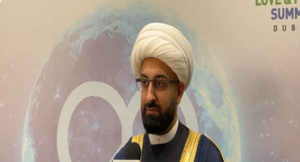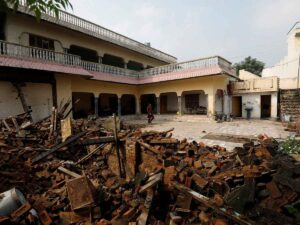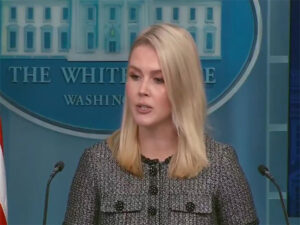Nepal’s ruling coalition party splits
Kathmandu, May 7 (PTI) The Janata Samajbadi Party-Nepal (JSP-N), one of the coalition partners in Prime Minister Pushpa Kamal Dahal Prachanda-led government, has split after a majority of its lawmakers and over two dozen central committee members applied for a new party at the Election Commission.
A faction of the JSP-N led by the party’s federal council chair Ashok Rai registered the application for a new party while the party’s chair Deputy Prime Minister Upendra Yadav, who is also minister for health and population, is on a trip abroad.
Pradip Yadav, a lawmaker of the JSP-N, said that 29 central committee members and seven lawmakers have jointly applied to form a new party.
Of the party’s 12 House of Representatives members, seven -Rai, Sushila Sherstha, Pradip Yadav, Nawal Kishor Sah, Ranju Kumari Jha, Birendra Mahato and Hasina Khan – have supported the new party named ‘Janata Samajbadi Party’ (without the ‘Nepal’ of the mother party).
The Election Commission on Monday officially recognised the Ashok Rai-led Janata Samajbadi Party (JSP) as a new political party.
Party insiders said that Rai registered the new party at the advice of Prime Minister Prachanda to counter Yadav, whose relations with the ruling alliance have soured lately. There are reports Yadav was trying to ally with the opposition Nepali Congress and the ruling party alliance CPN-Unified Socialist-led by Madhav Kumar Nepal after NC President Sher Bahadur Deuba reportedly offered the Prime Minister’s post to Yadav to topple the Prachanda-led government.
However, the ruling coalition consisting of the CPN-UML led by K P Sharma Oli and the CPN (Maoist Center) has managed to maintain a narrow majority in the Parliament with the latest political developments.
Leaders of the Rai-led faction claimed they had to revolt against the party leadership as Yadav was running the party in an autocratic way.
“The chair ran the party unilaterally and disrespected lawmakers,” Pradip said.
Forest and Environment Minister Nawal Kishor Sah Sudi, who also quit the party, claimed that the need for a new outfit was felt after the chair tried to break the ruling coalition.
“We took this decision for the stability of the incumbent government,” Sudi said. “The party chair (Yadav) is against this coalition but we will continue to support this government.”
However, the party establishment’s leaders said the party has not split. Just a dissident faction has parted ways, they claimed.
The split in the JSP-N will not affect the government’s stability at the moment, said Central Member of CPN-Maoist Centre Sunil Kumar Manandhar, who is also the former Minister for Environment amidst speculations that it might affect the coalition government.
Unless the CPN-Unified Socialist and JSP-N withdraw support from the government there is no need to seek a vote of confidence by the Prachanda government, Manandhar added.
“Lawmakers alone don’t make a party. A majority of party leaders are with us,” said Manish Suman, the party spokesperson.
He added that less than 20 per cent of the 300-strong central committee had left the party.
The split follows a long-standing discontent in the party. Only after the pressure from the other faction, had the establishment side been ready to hold its general convention.
Mohammad Istiyak Rai, a leader of the party, had decided to challenge Yadav, the party chair, in the upcoming general elections. However, the party split before the convention could be held.
Rajendra Shrestha has been named the federal council chair of the yet-to-be-legalised party, which has announced a 31-member central committee.
Rai is the chairperson while Renu Yadav has been named the joint chair. The party has four vice-chairpersons, a general secretary, deputy general secretaries and secretaries, among others.
Though the Rai-led faction has sought recognition as a new party under the Political Party Act, there are no clear legal provisions to guide the party formation process after a split in an existing one.
On August 18, 2021, the then Sher Bahadur Deuba government issued an ordinance to amend the Act to ease the split of two parties – the CPN-UML and the Janata Samajbadi Party.
Revising a provision in the Act, which requires the support of 40 per cent of members in the parliamentary party and the central committee to split the party, the ordinance lowered the bar to 20 per cent in either of the committees.
On August 26 of the same year, Madhav Kumar Nepal of the UML and Mahantha Thakur of the Janata Samajbadi Party registered new parties, the CPN (Unified Socialist) and the Loktantrik Samajbadi Party, respectively.
Two days later, the ordinance was repealed, having served its purpose.
The provisions amended by the ordinance have become void after it was repealed. Though a bill to reactivate those provisions of the Act has been registered in Parliament, it is yet to be endorsed.
“We have received the application (on new party registration),” said Ram Prasad Bhandari, an election commissioner. “A proper decision will be taken after evaluating the existing legal provisions.”
efore the split, in the 275-member federal lower house, the ruling coalition had 154 seats – 16 more than the magic number of 138.
Among them, the CPN-UML has 79 seats (including the Speaker and one suspended lawmaker), the CPN (Maoist Centre) has 32, the Rashtriya Swatantra Party has 21, the JSP-N has 12 seats and the CPN (Unified Socialist) has 10 seats.






